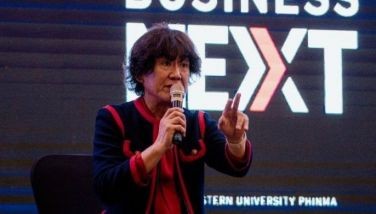How marginalized are we?
Part of the programs of government is the integration of Gender and Development (GAD). In its definition taken from the Philippine Commission on Women, states that GAD is “the development perspective and process that is participatory and empowering, equitable, sustainable, free from violence, respectful of human rights, supportive of self-determination and actualization of human potentials”.
In spite of this definition coming from the Commission on Women, there is no gender-specific discussion. Thus, I would like to think that the GAD program should be open to all genders.
Even if I am a woman, I continue to advocate for equality of opportunities. I came to note though that in the GAD measures, the emphasis is most often, it not always on the number of women participants. Females reached, or number of girls in the training room.
Where are the programs for men? Options for the other gender? Are our women to date still that marginalized?
Perhaps we can review our approach and adapt our development programs. Perhaps it should really focus on who is actually marginalized, and where?
In urban centers, we find women taking charge of their own destiny. We even find very strong personalities among women, and if we look at our statistics, we have more women then men and some of the men have even chosen other gender options, which, to my mind have not stopped them from excelling in their chosen endeavor.
In some rural areas, perhaps, in the remote, we can still find women totally dependent on men, or unable to think independently without consulting their spouses. Honestly, I think the “consulting” should continue between them for their different home roles. And yes, battering is never an option for control. Whether men or women, there should be no element of battering!
I would rather opt for training individuals to think strategically and progressively. To learn the value of open communication, collaboration, and complementation, I would like to think that we are emancipated.
Men and women have different strengths and marginalization only comes when there is one who is oppressed. Whether it be a man, a woman or whatever choice, the fact remains that Gender in Development should now open its doors to view development without gender-bias.
Should we have a preference in urging participation and growth, maybe we should look into who needs the help. Just my thoughts.
- Latest
























